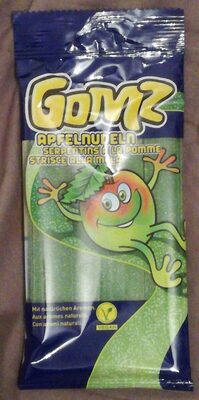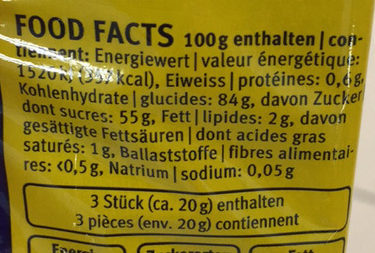Apfelnudeln - Gomz - 100g
This product page is not complete. You can help to complete it by editing it and adding more data from the photos we have, or by taking more photos using the app for Android or iPhone/iPad. Thank you!
×
Barcode: 8413178260527 (EAN / EAN-13)
Quantity: 100g
Brands: Gomz
Labels, certifications, awards:
Vegetarian, Vegan, European Vegetarian Union, European Vegetarian Union Vegan

Countries where sold: Switzerland
Matching with your preferences
Environment
Packaging
Transportation
Report a problem
Data sources
Product added on by openfood-ch-import
Last edit of product page on by .
Product page also edited by anticultist, foodrepo, kiliweb, openfoodfacts-contributors, yuka.YTRBSEZab2loT00yaWZjMDV5TDB5TUIzNXFlZ1VqbTdjc2N4SVE9PQ.
If the data is incomplete or incorrect, you can complete or correct it by editing this page.








